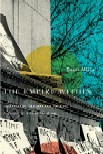
The Empire Within: Postcolonial Thought And Political Activism In Sixties Montreal
Sean Mills
McGill-Queen`s University Press
$29.95
cloth
318pp
9780773536838
The era covered in the book gave rise to multiple social struggles. The roots of various women’s, labour, Black, and community movements can be traced to a period principally linked, in Quebec, to the birth of the Quebec independence movement. Every one of these struggles was influenced by a common framework yet retained a “distinct narrative of liberation.” Each took its place in a movement of opposition, based in Montreal, which influenced the whole of Quebec society. In a context where the language of decolonization shaped radicalism, the ideologies and struggles expressed by these movements were not unique to Montreal and Quebec. The international movements against colonialism shaped both the analysis and the vision of the period, and Mills presents radical nationalists as French-speaking Quebeckers who understood that they were a colonized minority within Canada and North America. The connections between nationalism, the demands to make French the language of Quebec and the radicalization of the labour movement – along with some of the major events of the period such as strikes, rallies, demonstrations, The War Measures Act, etc. – are clearly documented, and the book includes writings of major intellectuals who influenced these movements.
In order to dispel the myth that the voice of liberation in Quebec spoke only French, the book includes chapters on the Black community, the English-speaking minority, feminists, those involved in neighbourhood struggles and in McGill Français. The chapter titled “Montreal’s Black Renaissance” shows that Montreal was a centre for Black intellectual ferment and action which converged with some radical nationalist activities. Another chapter, devoted to the origins of the women’s movement, demonstrates the power of the movement’s challenge to male domination in everyday life as well as within the nationalist and labour movements.
Though it provides readers with a wonderful historical starting point, the book fails to elaborate on the legacy of the ten-year period in question. The leaders of the nationalist movement understood that French-speaking Quebeckers were a colonized people, but ignored the demands of the First Nations. As a consequence, social movements in Quebec have been slow to support the demands of Aboriginal communities. This has resulted in events such as Oka and the Mercier Bridge blockade. Likewise, the definition of nationalism shifted from one located within a radical decolonization tradition to one based on identity and language, which marginalizes the English-speaking and immigrant working classes. This consequence is particularly important as migration to Quebec from the “Global South,” with many using English as their first North American language, increases.
As someone who came of age politically in the latter part of the period covered by the book, I remember many of the incidents described. More importantly, however, I have seen over the past thirty years how this earlier period has both limited and given strength to various movements and organizations. The strength this period gives comes from its militancy and prevailing view that the target of social change movements was a system, namely capitalism and the power of “Empire.”
This is an accessible book that, for the most part, does not get lost in arcane theoretical discussions, as might be implied by the title. The Empire Within should be required reading for anyone who wants to understand Montreal and Quebec society. mRb






0 Comments